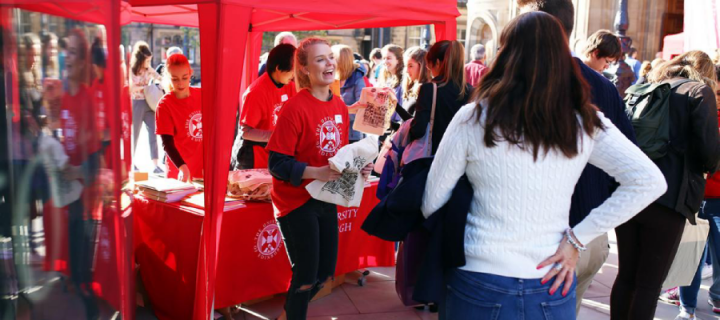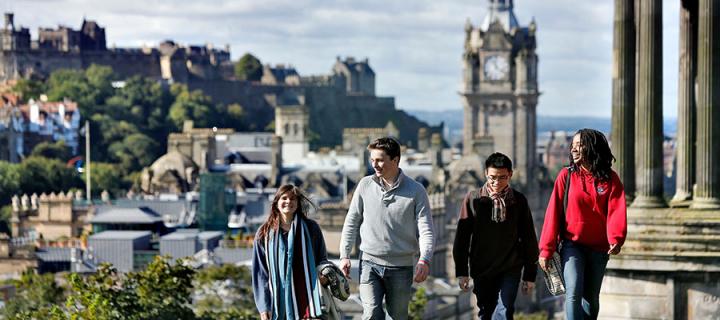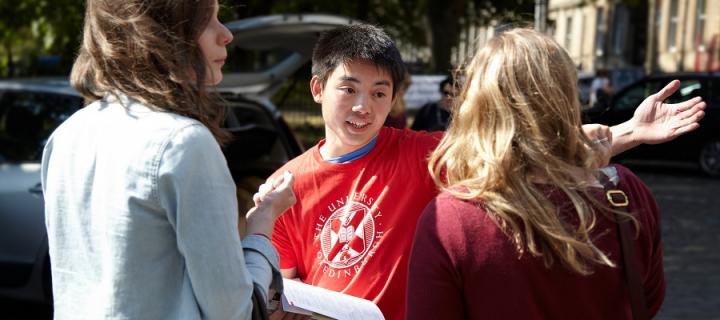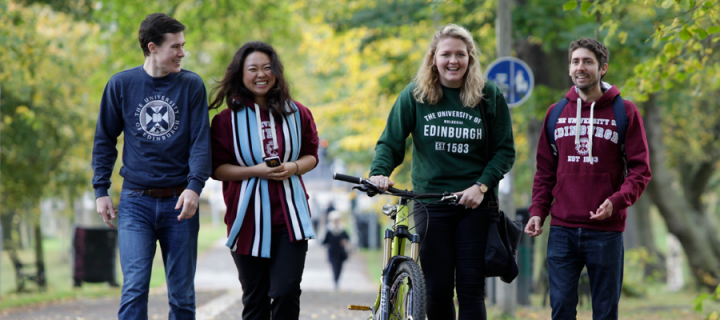Search the degree finder
All you need to know about applying to study as an undergraduate at Edinburgh.
Find out more about the types of qualifications we accept for entry.
How much it will cost to study at Edinburgh and what support is available.

These are a great opportunity to find out about student life in Edinburgh from the people who know it best: our staff and students.

Join some of the best students from around the globe at one of the world's top universities.

We run a range of online events - giving you a unique opportunity to ask questions and find out more about studying with us at Edinburgh.

Join a vibrant student community in one of the world's most desirable places to live. Discover life at Edinburgh.
When you apply to study here, we consider lots of different factors alongside your exam results, and we provide support along the way to help you make a strong application.



